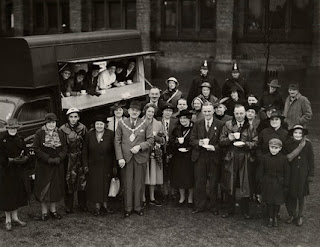Sometimes you know a topic really well, you’ve taught it many times, you are familiar with the key ideas and subject knowledge. You know which text book has the best images, the best activities, or which clip of film to show to engage your students. But sometimes, going back to original documents can make you – and your students – see a topic in a different light.
Take for instance, this extract from a monthly report from Leicester, November 1940:
We are all familiar with the image of a canteen van after an air raid, serving tea. But how long would it take to make 268,000 cups of tea, or to drink it? In a time of rationing how on earth do you get hold of 6 cwt of tea, or 15 cwt of sugar? Or serve dinner for 100 men at one hour’s notice? What impression does it give you of the Women’s Voluntary Service, and the volunteers providing this service? By going back to original sources like this you do get a different perspective, and a clearer understanding, of the difficulties of ordinary everyday life on the Home Front during World War Two.
You can find lots more original sources about the Home Front during WW2 – and activities to go with them for Key Stage 2 and Key Stage 3 – on the website ‘The Army That Hitler Forgot’ at www.wrvs.org.uk/schools
Alf Wilkinson
CPD Manager for the Historical Association and previously National Strategist for Key Stage 3 History. Alf has over 30 years history teaching experience and was lead author for Collins Key Stage 3 History resources.



